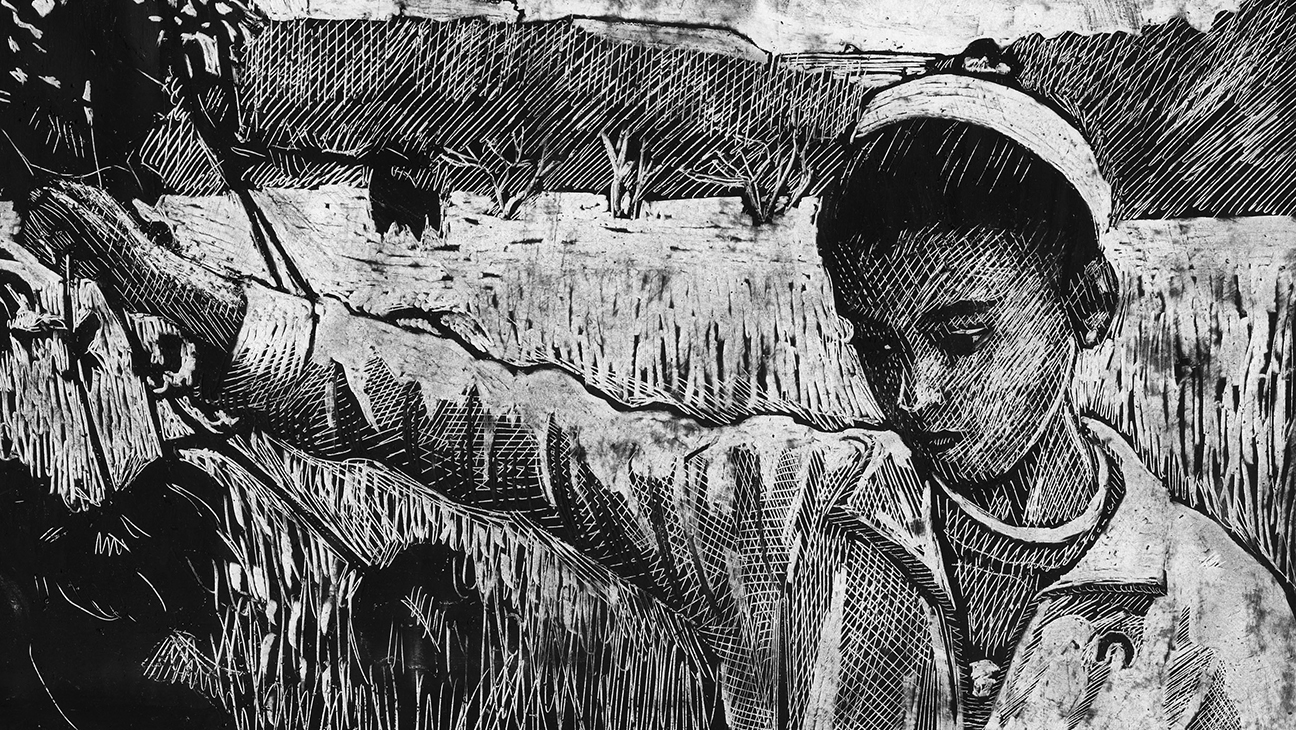Modified
(Canada, 44 min.)
Dir. Aube Giroux
Ten years and many emails to bureaucrats later, Aube Giroux’s Modified is available for all of Canada to see. The doc’s journey, Giroux tells us in voiceover, began as a seedling planted by her mother, Jali, when the Aube was just a little girl. As the director tells audiences in Modified’s intimate narration, Mme. Giroux taught her kids to savour the natural wonders of the Earth. The film introduces viewers to the Giroux family’s home garden where scrumptious fruits, veggies, and other healthy things were at their disposal on a seasonal basis. Giroux describes how her mother instilled within her a passion and responsibility for healthy eating. This seedling of inspiration grows and grows as Modified recounts the filmmaker’s journey to share her mother’s guidance with the world.
The broadcast cut of Giroux’s Modified carries much of Giroux’s artful blend of foodie enthusiasm and environmental activism. While her feature inevitably has a wider scope and more depth of flavour than the version half its running time, Giroux’s eclectic style and personal delivery ensures that this film is better than the average TV doc. (Although the edit inevitably makes the doc feel a bit more heavy on the talking heads, with names like Jane Goodall appearing if only for the sake of it.) Central to the film is Giroux’s relationship with her mother, which makes an immensely relatable point as the filmmaker rolls her eyes over her mother’s constant nagging to introduce the perils of genetically modified organisms (GMOs). Giroux’s mom sends her oodles of books on the topic, which the filmmaker humorously illustrates through a staccato-style sequence as the books pile up without garnering much interest. Once she finally succumbs to her mother’s pestering concerns, though, Giroux finds some revealing research about the nation’s food regulation.
Modified offers a concise and digestible distillation of GMOs as Giroux dives into the research. She learns about the bad science that pumps oodles of crap into the food we eat while bandying about buzzwords like “yield” and “resilience” to justify tinkering with nature. She interviews an impressive mix of credible speakers, including organic farmers and experts, who testify that the claims and bad science supporting GMO research are all just piles of manure. Instead, these additives necessitate the use of pesticides and herbicides that are more aggressive than those used for “natural” plants, which means that the food making its way to grocery stores probably contains more toxins than nutrients by the time it arrives on consumers’ tables. The problem with this practice, or perhaps one major problem among many, is that too few consumers know about the GMOs and additives in the food they eat. That’s because Canada and the USA don’t require manufacturers to note the presence of GMOs in food products. It’s a ridiculous fact, one interviewee tells Giroux, especially since including so much as a teaspoon of H20 requires manufacturers to include water on a list of ingredients.
Giroux speaks with a number of well-informed people, including youth activist Rachel Parent, who give voice to consumers who want the government to act responsibly. Despite support from the general population—a 2018 Toronto Star survey noted that approximately 90% of respondents favour mandatory labelling—the government continues to ignore their voices. This choice to ignore the will of the people and perpetuate the status quo is humorously underscored by Giroux’s attempts to land an interview with a representative from Health Canada. Modified drolly shows Giroux getting the runaround from PR types who boast all too familiar platitudes and conciliatory terms while dragging out the process and trying to kill her spirit while refusing to connect her with someone to speak for Health Canada. Giroux shows this sequence of events as she cuts together one phone call and canned PR message after another. Her persistence is inspiring.
Giroux doesn’t make light of the situation, but she’s very effective at using humour to aid her quest. Modified features a buffet of animated sequences and interludes that show the director in the kitchen whipping up some home cooked meals while reflecting on the lessons imparted by her mother. Giroux’s organic style gives the doc ample flavour while delivering the nutrients. These mouth-watering sequences offer warm reminders that North Americans could take a cue from European culture and place more emphasis on the social and cultural significance of food, rather than its commercial value. Modified shows that, when purchased as commercial commodities—with additives and assorted chemicals, food can do more harm than good. When shared naturally and imparted as something that feeds, nourishes, and unites us, however, Giroux encourages us to think more carefully about what’s on our tables.
Modified screens on CBC Friday, March 29 at 9:00 PM and is available on CBC Gem.











